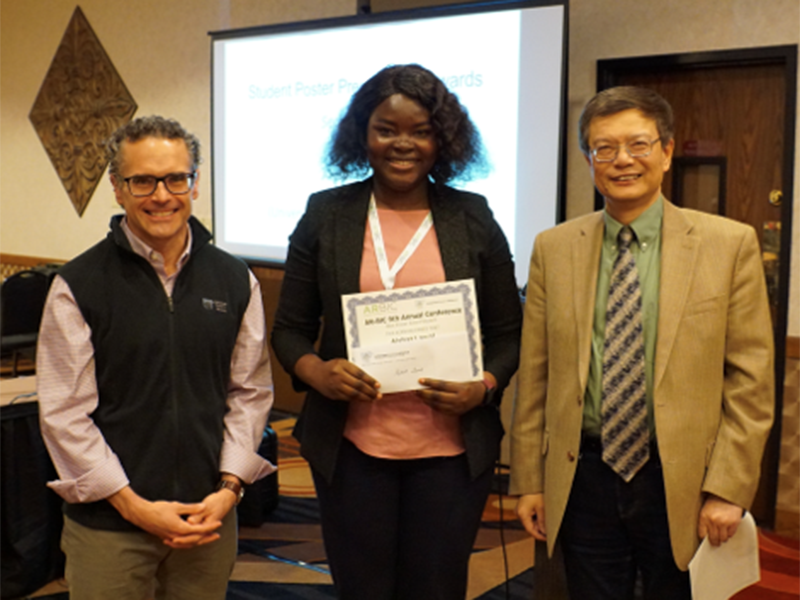
Graduate student Aishat Lawal placed second in a poster competition at the ninth annual Arkansas Bioinformatics Consortium Conference held earlier this month.
Lawal is from Nigeria and is a Master of Science student in the Graduate School and International Education's cell and molecular biology program. She placed second in the student category for her poster on the topic "Genomic Characterization of Enterococcus Species from Infecting Broiler Embryos."
Bacterial infection of broiler chicken embryos is a challenge to the poultry industry, as it could result in the death of the embryos, which in turn reduces the yield of broiler chickens and negatively impacts the economy. Lawal's project is geared towards using molecular and bioinformatics approaches to understand the Enterococcus bacteria that are responsible for chicken embryo death to help develop interventions to prevent embryos' death.
"I am delighted to have been recognized at this conference. It was indeed an incredible moment for me," Lawal said. "This would not have happened without the support, mentorship and guidance of my wonderful adviser, Dr. Douglas Rhoads."
"Aishat joined my lab to learn genomics and bioinformatics," Rhoads said. "She took on this project as we have become very interested in the different Enterococcus species that are an increasing problem in the poultry industry. We need to understand the genetics of the pathogens and how they are adapting to poultry. We are working with the poultry industry and other scientists across the U of A campus and the world to validate strategies to mitigate these bacterial problems. Aishat's work is central to our understanding of problems in hatchability and embryo mortality. In addition, the techniques she is learning can be adapted to the study of bacterial pathogens in other animals or even humans."
The Arkansas Bioinformatics Consortium facilitates communication and collaboration to leverage Arkansas expertise and resources in data sciences and bioinformatics. Established in 2014, the consortium began to fulfill this mission by hosting annual conferences. The themes of the meetings explored bioinformatics applications in precision medicine, agriculture, data sciences and artificial intelligence.
More information on AR-BIC can be found on their website. More information on the Cell and Molecular Biology Program can be found on the program website.
Topics
Contacts
John Post, director of communications
Graduate School and International Education
479-575-4853, johnpost@uark.edu